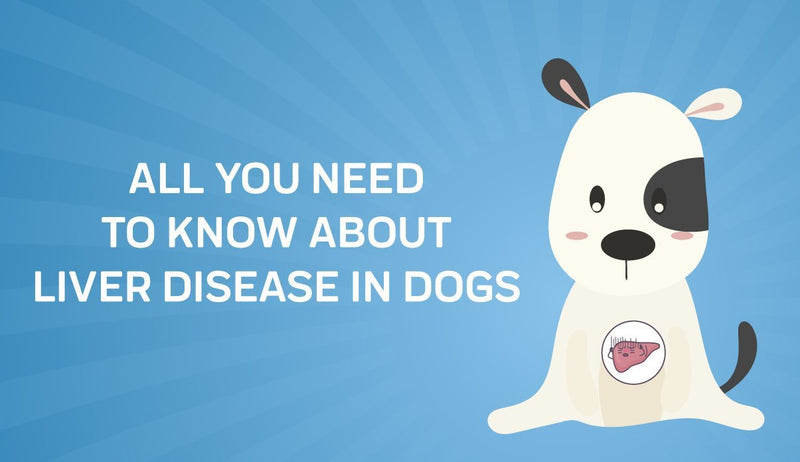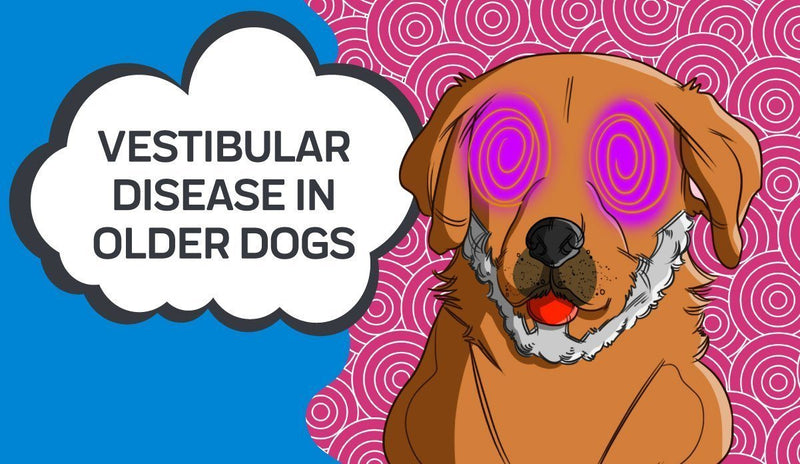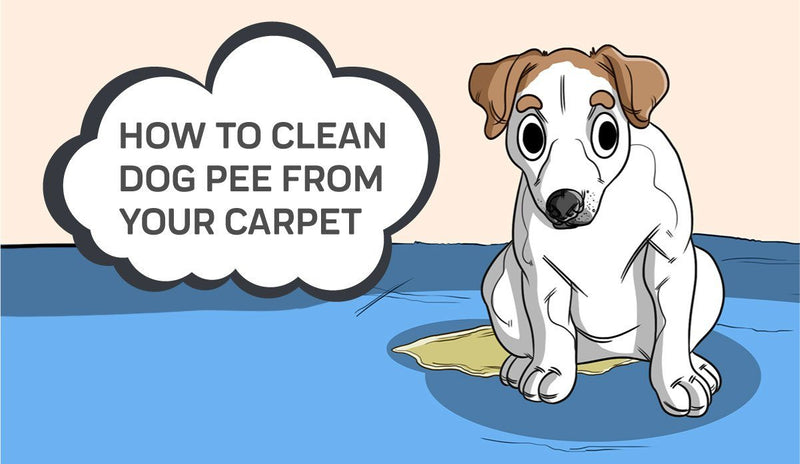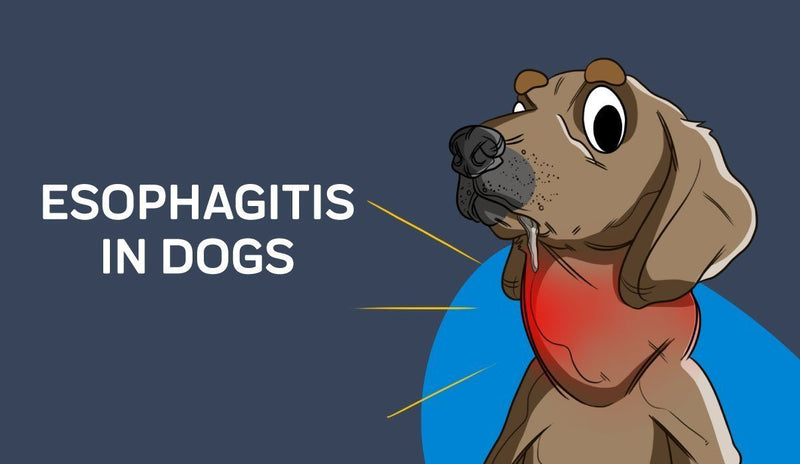
Can adult dogs eat puppy food? Canines have healthy appetites, mostly due to their evolution from wolves. At one time, their ancestors walked the forests, scavenging whatever prey animals or food they had the ability to find. These days, far less scavenging is needed for a dog to survive, yet the need to eat still is a driving factor for his daily dog routines. As his pet owner, it is important to ensure that he is obtaining the best nutrition possible inside his bowl, yet are all types of dog food equally nourishing?
If you reside in a multi-dog home, you might be wondering, “can I feed my adult dog puppy food”? This post from Innovet Pet Products will address the main differences between the adult food and puppy food in order for you to provide your dog the best nutrition possible.
Why is Adult Dog Food Important?
Is puppy food bad for older dogs? With the dog’s scavenging ancestors, dog owners might wonder why their pet cannot simply eat whatever he wants to be healthy – table scraps, for instance – instead of a balanced diet. Like with human beings, there’s a huge gap between surviving and thriving! Dogs need a diet customized to his nutritional requirements for the same reason human beings strive to consume healthy food: it is the best method of warding off common ailments, stay active and strong, and ensure a high-quality, long life.
Can older dogs eat puppy food? Adult food variants are specifically formulated for older canines: their protein balance is made to offer exactly what’s necessary without having to go overboard or contribute to obesity (more on this later). Depending upon the dog’s specific requirements, his adult food also may require specific adjustments to the ingredients, as with grain-free, allergen-free, or “raw” diets. Puppy food, which generally is less specific within its ingredients, may set his diet off-kilter and produce flare-ups of canine allergy or health problems.
Obesity in Dogs: What Causes It?
Obesity is a harmful condition in both dog and humans and determining the underlying cause of dog obesity is critical to seek the proper treatment options, as well as prevent more health complications.
Before it is possible to assess the causes of dog obesity, it’s essential to comprehend what obesity is and obesity symptoms. With these details in mind, it’s possible to work with the vet to determine the cause of dog obesity and choose the suitable option for treatment.
In the next section we discuss obesity in dogs, as well as the possible causes and symptoms of obesity, as well as typical options for treatment.
Obesity: What is it?
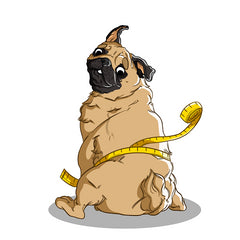
Obesity is an excessive quantity of weight on a body. It’s a nutritional condition that’s characterized by the existence of an excessive quantity of body fat. There are specific environmental factors which play a part in the development of dog obesity. If the dog is being overfed, isn’t exercised properly or isn’t able to exercise, or is genetically predisposed to weight gain, then he’ll be more susceptible to becoming obese.
Obesity carries along with it numerous substantial health risks, which includes a shorter lifespan. Excessive body fat weighs on the body, as well as throws natural functions and processes out of their usual routine. Excessive body fat mainly impacts the digestive organs and system, respiratory organs, and the joints and bones.
Obesity is a very typical condition in dogs of all breeds and ages; however, it’s more prevalent among middle-aged canines between age five and ten. Canines which are kept inside and canines which have been neutered also are more at risk of becoming obese over the course of their life.
Dog Obesity Symptoms
If you think your dog might be becoming obese, it’s vital that you keep a close eye for the development of the tell-tale obesity signs. The most typical obesity symptoms include weight gain, as well as the presence of an excess quantity of body fat. Every time a dog goes to the vet, their weight is tracked.
Oftentimes vets will alert you if there’s a substantial increase in your pet’s weight between trips, but you also may have the ability to tell by physical appearance on its own or increased weight while trying to carry or lift the dog. If your vet evaluates the dog’s body condition and observes an above-ideal rating, they’ll alert you. Canines which have become obese also may not have the ability or not willing to exercise.
Dog Obesity Causes
To determine the proper option of treatment for your dog, it’s important that the underlying obesity cause be diagnosed accurately. Every time a dog consumes food, he’s eating food that will be converted to energy. As his energy intake is imbalanced with the proper amount of energy being burned, the dog will probably gain weight as a result.
Besides this imbalance, old age also sometimes is a culprit of obesity as a canine might have more difficulty when trying to exercise because of joint or bone pain. As dogs age, they’ll metabolize food more gradually, too, which may cause weight gain.
One other common obesity in dog causes is unhealthy eating habits. If the dog is constantly provided high-calorie meals, fed several times a day in massive quantities, or offered frequent snacks, then it’ll be at a far greater risk for developing canine obesity.
Other typical obesity causes include hyperadrenocorticism, hypothyroidism, and insulinoma. Hypothyroidism happens when the thyroid gland inside the neck doesn’t make enough of the hormone referred to as thyroxine, which controls the metabolism.
Hyperadrenocorticism is a circumstance that also sometimes is referred to as canine Cushing’s disease. When the dog develops this disease, the body overproduces cortisol. Insulinoma is additionally referred to as pancreatic dog cancer and is a kind of fast-growing cancer cell (malignant neoplasm) of the beta cells which comprise the pancreas. Those beta cells secrete insulin.
Treatment Options for Dog Obesity
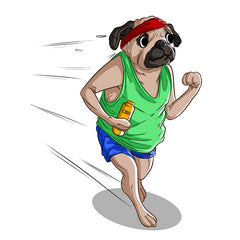
While trying to treat dog obesity, your vet often will develop a strategy to decrease overall body weight through loss of weight and then sustain the healthy weight over the span of the dog’s life.
It’s usually accomplished through a reduction caloric consumption and an increased quantity of exercise, similar to human beings. For canines that have cancer or a kind of hormone disorder, your vet might prescribe a medicine that controls the hormone levels or evaluate options for surgery.
Feeding Adult Dog Puppy Food
When can puppies eat adult food? We will address that question later, yet every pet owner has faced this conundrum at some point: the family pup is hungry, his “regular” food is unavailable or empty, and someone well-intentioned person offers a bowl or bag of puppy food instead. At face value, it is easy to rationalize merely swapping the two dog food brands out. Because after all, they are both formulated for dogs, appear similar, smell the exact same, and likely taste similar to him, too. So, yes, pet owners may feed an adult puppy food if they’re in a pinch; however, it isn’t something that ought to become a habit for many reasons:
Can puppies eat regular dog food? Keep in mind that canines become accustomed to “their” food brand: Human tummies may get upset and susceptible to urgent bathroom breaks when a new food is introduced suddenly, and dogs aren’t any different. Usually when changing brands of dog food, vets suggest a gradual transition, blending the food over several weeks or days into each other.
An abrupt bowlful of puppy food may send an adult pup’s tummy on strike – and in some cases, leave dog owners with an unhappy pooch, or an uncharacteristic “accident” indoors. If he is resisting a new dog food brand when you’re attempting to change your dog to adult food, try to add a bit of gravy or wet food on his adult dog food in order to make the food more enticing.
Can a puppy eat adult dog food? Puppy food is a bit like adult dog junk food: Puppies, as with human infants, require lots of calories to burn while they are exponentially increasing in size. For larger dog breeds, their size may double a couple of times on the path to adulthood, meaning a ton of protein gets burned in the process.
For adult dogs that have already done all of their growing, that added protein is not burned off, and instead becomes additional weight which may have a negative effect on his health. The adult dog’s dietary requirements become different as he ages, which is why there’s food specifically formulated for more mature dogs. Indeed, too much of specific puppy-friendly ingredient in his diet may tax filtering organs such as the kidneys or liver, diminishing the dog’s quality of life. So, it is vital to be mindful of his requirements, speak with a trusted veterinarian for suggestions, and buy the specially-made geriatric dog supplements and foods suitable for him either online or at a brick-and-mortar pet store.
Once or twice will not hurt them, yet again, do not make it a habit: As with humans, dogs need food on a routine basis to remain healthy and happy, so for dog people in a pinch with just puppy food available, it is better than nothing. However, long term, whatever cost or effort owners might save serving up the improper kind of dog food will begin to impact his health; therefore, avoid making it a routine occurrence. If tummy discomfort is noticed in a pet for more than one or two days once he has changed back to adult food, immediately contact the vet for an exam.
If getting to the store or remembering to buy adult food is a problem, think about using a delivery service online to ensure his dog food brand does not unexpectedly run out. If a family member or friend is buying dog food for your household, taking a phone snapshot of the label and texting it may prevent miscommunications.
Give Your Pet Age-Appropriately
The word “wolfing” down food isn’t any coincidence: the majority of dogs will gladly consume anything which tastes good to them, irrespective of the dog age it is aimed for. Eventually, once a canine has attained maturity and stopped growing, dog owners have the duty of giving their beloved adult dog the proper balance of nutrients. In avoiding puppy food and talking about the best nutritional choices for his lifestyle with a trusted vet, dog owners will ensure the health, longevity and vitality of their furry companions, which is a win-win for everyone!Can Puppies Eat Adult Dog Food?
As your pup grows into adulthood, he requires nutrition which keeps his body as strong as your love, and this means a premium, quality adult formula.
Advantages of Giving Premium Food
Why move your adult pup to a premium adult food? Because quality counts. It is critical to continue his superior puppy nutrition into adulthood. Going to a lower-quality dog food brand at this phase of his life might upset his digestive system and will not give him the same nutritional excellence level he was raised on.
Think of an infant. When it is time to begin giving him solid food, you would not dream of feeding your baby anything less than the top nutrition you can purchase. The same holds true for a maturing puppy. He requires the best age-appropriate food there is in order to assist in maintaining his general health.
How Long Should Dogs Eat Puppy Food: When to Switch
Your pup's transition to adult dog food ought to start when he reaches adult height. His type of breed also will assist in determining when to switch. Smaller dogs usually physically mature a lot sooner than larger breeds.
Follow these “how long should my dog eat puppy food” guidelines to aid you in determining when to change formulas:
- Smaller dogs which weigh 20 lbs. or less when fully grown usually are prepared to consume adult food at 9 - 12 months.
- Medium breeds weighing between 20 - 50 lbs. as adults usually mature at 12 - 14 months.
When Can A Puppy Eat Adult Food?
Large and giant breeds, the one that weigh over 50 lbs. when fully grown, may not be prepared to switch to an adult dog food until they are 12 - 24 months of age.
When to Take Dog Off Puppy Food: Make the Transition
In order to avoid causing diarrhea or upsetting the dog's intestinal tract, make the switch from a puppy formula to adult diet over a span of 4 days by blending the two foods in the dog's bowl.
- Day 1: Fill up the dog’s bowl with 25 percent adult food and 75 percent puppy food.
- Day 2: Blend the puppy and adult food in 50/50 ratio.
- Day 3: Feed the dog a mix that is 25% puppy food and 75% adult food.
- Day 4: Change to 100 percent adult formula.
How quantity of food should you provide your pet? Check the day-to-day feeding suggestions set forth by the pet-food manufacturer and check its label. It’s recommended to utilize the suggestions, rather than weighing the dog every week. If he is losing or gaining weight and should not be, somewhat increase or decrease his day-to-day intake, and weigh him once again in another week.
If you have certain concerns about the dog's weight, speak with the vet. She or he will evaluate the dog's needs and provide you a feeding suggestion on when can puppies eat dog food.
What to Include in Your Pet’s Diet
Carbs
To see what carbohydrates you ought to include in your pet’s food, all you need to do is check the back of the bag. You should always search for whole grains or additional nutritious sources. On average, the dog’s diet ought to include from 30 to 70 percent of carbs. This quantity might vary depending upon the dog’s size, age, metabolism and activity level.
Protein
Try and find a common protein that’s easily identifiable like beef, chicken, fish, turkey, or eggs. The more natural an ingredient, the better, as with human beings. Canines ought to get 18 percent to 25 percent of protein within their diet. Be alert to goods that have high protein levels, because too much actually can be dangerous to the body.
Oils and Fats
Possible sources of fat that may be used in the dog’s food involves chicken fat, fish oil, pork fat, soybean oil, and many other ones. Usually, a canine ought to consume 10 to 15 percent fat in their diets to sustain a healthy body. Be careful that your pup’s fat intake doesn’t exceed this quantity, which may trigger weight gain and become vulnerable to obesity.
Minerals & Vitamins
Essential minerals & vitamins are a vital factor that’s required in all diets. There’s a broad array of different minerals & vitamins that are needed to support a variety of body functions. For instance, vitamin A assists in promoting a healthy coat whereas vitamin C aids in reducing inflammation. The majority of a dog’s vitamin consumption comes from vegetables, fruits, and meats which are included in dog food.











